Radio Savage Houndy Beasty – Millennium Buggery
Label: RSHB Format: CD
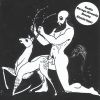 Superb. Millennium Buggery has moments of inspired genius. Radio Savage Houndy Beasty broadcasts a mixture of deranged DJing and audio absurdity once a week on Leeds Student Radio. Think of Monty Python on the Radio, or think of The Day Today or Brass Eye. Then add numerous songs done in the style of various personalities. “Singing in the Rain” by Humphrey Bogart, and Stephen Hawking‘s venture into Gangsta rap. After an introduction describing how MC Hawking was arrested at the MOBO awards after dickslapping Mel G, we cut straight to a track from his album A Brief History of Rhyme. All you need is a speech synth and a sampler and you too can be a wickid smart MC. Other favourite moments of mine were the “Join The Police” advert and the stodgy “Jingle Bells (Christian Metal)”.
Superb. Millennium Buggery has moments of inspired genius. Radio Savage Houndy Beasty broadcasts a mixture of deranged DJing and audio absurdity once a week on Leeds Student Radio. Think of Monty Python on the Radio, or think of The Day Today or Brass Eye. Then add numerous songs done in the style of various personalities. “Singing in the Rain” by Humphrey Bogart, and Stephen Hawking‘s venture into Gangsta rap. After an introduction describing how MC Hawking was arrested at the MOBO awards after dickslapping Mel G, we cut straight to a track from his album A Brief History of Rhyme. All you need is a speech synth and a sampler and you too can be a wickid smart MC. Other favourite moments of mine were the “Join The Police” advert and the stodgy “Jingle Bells (Christian Metal)”.
Finally take “Rolf Harris: Literally A Wanker?” The evidence presented in this radical reinterpretation of Mr Harris is pretty convincing, I’m afraid. The deadpan Chris Morris-esque researcher Daniel Kneecaps presents excerpt after excerpt. We hear Rolf groaning “play your digeridoo, blue, play your digeridoo, play your didgery, blue, keep playing ’til I shoot through.” The culmination, climax even, is a brilliant and utterly blatant speech reconstruction of Rolf’s supposedly lost recording entitled “Beginner’s Masturbation Classes. Would Rolf approve?” The old showbiz maxim of love me, hate me, but don’t ignore me is stretched pretty thin here.
-ap-
Radio Savage Houndy Beasty – 2001: A Spaced Oddyssey
: Label: RSHB Format: CD
What do you mean, you can’t do that on radio? RSHB can do what they like and don’t care who hears it. Well, if you haven’t tuned in to their comic and innovative use of the airwaves you can have it all here on CD. Where else might you hear Cliff Richard‘s brand of funky Christianity having the piss taken out of it ? Or find yourself enjoying Xmas with The Jacksons ? Fancy singing along with Tiger Lilies‘ “Banging In The Nails” ? You can do all of this and listen to the political insights of street-wise Councillor Barry Massive. Now here’s a man who clearly enjoys mixing his sexual incontinence with reverence for the policing policies in Leeds 6. What a mixture.
If you’re still not sure what to do with your life listen to “Join The Police” or “Have A Job”. “Anal Sex” comes with its own special career advice too. Cultural items such as “Film News” and “Shaft In Yorkshire” will no doubt help you fill your leisure time. I’m surprised that no one has thought of combining the tough no-nonsense character of John Shaft with life in the mines. Throw in a fake Yorkshire accent and lines like :
“Who’s the Barnsley king of soul
Who’s also known for mining coal”
and I reckon you’re onto a winner . Someone should tell Ian McMillan. He could write the screenplay.
So, you see nothing’s safe from the sharp satiric teeth of RSHB. Kung Fu fighting, George Michael and Blues singers had better beware. If you want to get it, check out their website or any first year student bedsit in the vicinity of Leeds.
-Paul Donnelly-
Ramleh – Too Many Miles: Complete Singles 90-95
Label: Dirter Promotions Format: CD
The undeniable locomotive propulsion of the electronic 1980s leads into the careening wreckingball that is Ramleh (the name of the prison in which Adolf Eichmann was held and the site of a crucial battle of the Crusades in the 12th century). It seems that most are familiar with the guitar-based form of Ramleh, and this compilation of singles serves to bear that conception out. Gary Mundy and Philip Best are credited on this release, but lest we forget the hard work of the hard work of Anthony Di Franco, Stuart Dennison and Stuart Rossiter. All tracks engineered by Ian McKay (not the Fugazi guy).
Asked recently about the paradigm shift into guitar work, Gary Mundy replied:
I started out as a guitarist and then around 1982, became intrigued by keyboards to such an extent that I gave up the guitar completely for 18 months or so. However, I soon began to realise that, for me, the guitar is the most expressive instrument that exists and although I still use keyboards in my work, the guitar is what I enjoy the most and do the best. As regards subject matter, the “Power Electronics” era was violent music and the lyrics and imagery were therefore violent also. The guitar-based music I have been involved with has either been in collaboration with others and in these situations I generally do not write the lyrics, or else it’s been predominantly instrumental music. In general the subject matter suggests itself as a result of the music created rather than a subject being chosen and then music created for that subject. I have tried subject-led music but it has generally been less successful.
It’s as if the guitar at times becomes a flexible, pliant instrument – stretched out in scads of scree and so forth. Most of the vocals are unintelligible, or otherwise inaudible. Like driving through a latenight city blackened by the shells of unemployment and humidity – this is not a bad thing. Feedback and very simple drumming – it’s a sound that’s divorced from almost everything else that was happening at the time. Madchester, Shoegazing, Grunge – it’s too occult and eccentric to have been welcomed into any of those “camps”, such was the village mentality back then. Is? All for the best, all in due course.
Curling licks of feedback flames burn into the walls at high volumes and temperatures. As time passes – if these songs are presented in chronological order – it seems that all in the group have continued the explore and exploit the possibilities of their respective instruments.
-David Cotner-
Ramp – St. Ockwell/After The Flood
Label: Enraptured Format: 7″
Pressed up on extremely lovely multi-coloured radilly-swirled vinyl of suitably hefty feel, Ramp‘s debut 7″ for Enraptured matches the physical presence of the disc itself with the blurry music on each side. “St. Ockwell” is built around a chiming guitar loop of suitable prettiness which underpins a swirling electronic sheen. Unobtrusive percussion sounds and an uplifiting melody complete a nifty slice of relaxed earcandy which evokes big wide landscapes such as Ramp man Patrick van Kann‘s native Western Australia with gentle aplomb, and it’s only fault is that it isn’t really long enough. “After The Flood” has the same sense of space and time passing at a throttled back pace, tinkling on deceptively simple plucked notes and a wafting drone. While the beats are more uptempo, the mood remains chilled and somewhat elevated at the same time, inhabiting the same slow-motion textures as the shimmering beats and hums found on Bowery Electric‘s similarly paced Beat album.
-Linus Tossio-
Maja Ratkje And Lasse Marhaug – Music For Shopping
Label: Synesthetic Recordings Format: LP
The work of Maja Ratkje and her accomplices in the field of noise has begun to intrigue me. Her solo CD Voice must take most of the responsibility for this. Listening to it has become a sort of daily compulsion. I don’t know if it’s healthy but I love it. Such is the nature of compulsion. Like shopping. And Ratkje, along with Jazzkammer’ss Marhaug, has constructed a soundtrack that ought to be heard in every emporium or mall where people gather to indulge.
They know what people want, so they have created pieces like “The Street Parade Massacre” and “Spunk Rock Goes Total Shock Monster”. Ideal for browsing the racks in your favourite high street store. I think people would appreciate the accompaniment of desiccated samples belching out against trembling Theremin as they sip latte in air-conditioned comfort. You may feel that the world is moving at the wrong speed. Did someone tamper with the escalator ? No, its just the rampaging “Femail Popcorn Demon” littering the aisles with an arsenal of analogue effects and muffled explosions. And they treat you to the sight and sound of “Sweet Music And Lonely Bear With Ghost”, the perfect companions for a trip through both designer outlet and bargain basement.
And for serious purchasers this is only available in a limited edition on heavy duty vinyl. That’s my kind of shopping.
-Paul Donnelly-
Maja Ratkje – Voice
Label: Rune Grammofon Format: CD
Some artists’ work can produce extreme responses in a listener. When I first heard Maja Ratkje my response was pretty extreme. I was introduced to her as part of the improvising quartet Spunk and I really didn’t care for much of what I heard, to put it mildly. Then I received this, a solo project, and feared the worst. The title describes the contents, it is a project conceived using just her voice. But this isn’t “just” a voice.
I have listened to it dozens of times and have had to re-assess my initial misgivings and revise my opinion. This CD has gradually worked some kind of magic on me. I am completely converted me to the way in which Ratkje uses the voice. What she does, with the help of co-producers Jazzkammer, is take a range of recordings in various locations, sample and process them and then deliver the mixture in a breath-taking demonstration of what can be done with the human voice – and some imagination.
Her voice when more or less untreated is a remarkably pure and strong instrument in its own right, capable of traversing a wide range. There are examples of this on the title track, a piece which showcases with her spookily atmospheric vocal multi-tracked and intimately recorded. When presented like this it is easy to hear her singing a variety of musics. Jazz immediately comes to my mind. There is a sense of controlled power waiting to be unleashed. And on some tracks she lets that happen. That was what I found a little hard to take at first. Listen to the blood curdling onslaught on the opening of “Joy” or in parts of “Vacuum”. Strangulated screams and ritualistic howlings attack the senses. It is a kind of full body workout for the ears of any unsuspecting listener.
However, I’d recommend anyone to start, if it doesn’t seem too obvious, with the aptly named opener, “Intro”. It is an utterly entrancing piece where she intones Jon Oystein Flink‘s scrambled narrative in a child-like manner. Samples of her voice are treated and act as a more abstract foil for the very human and delicate quality of her spoken words. “I want to hear all about-.” she chants unfolding an idiosyncratic text to its softly spoken conclusion. I realised after a few listens that it reminded me of James Joyce reading parts of Finnegans Wake. There is a similar musical quality in the voice and language. What a pity Joyce didn’t have access to the current technology!
The variety of recording locations contribute a good deal to the overall sound too. She has used the Emmanuel Vigeland Mausoleum, a place which also added atmospheric resonance to some of Arve Henriksen‘s work on Sakuteiki. Ratkje has also recorded on a roof, in basements, in an elevator and more conventionally in a couple of studios. Some of the sounds were caught on minidisk, hard disk and dictaphone, the latter producing “Dictaphone Jam”, a collage of chopped and speeded up tape repetitions with some snatches of her natural voice submerged murkily in the manic brew. It is fascinating and compelling mixture.
I have to say that this graft of sublimely melodic vocalising, panic attack breathing, hysterical laughter and wonderfully woven samples of all manner of vocal treatments has made a profoundly persuasive impression on me. It is full of her joy in exploring sounds. How did I miss that first time around? Whatever, I am a convert now.
-Paul Donnelly-
Red Snapper –Making Bones
Label: Warp Format: CD
So, looking back, then, Reprazent‘s Nu Forms? Cool, but what if it had opened like that and then gone off in about eight different directions instead of one really fast one? What if halfway through someone had said “slow down Roni mate, let’s have a spliff and put that Massive Attack album on”, or “this is my mate, he’s into Jazz and plays the trumpet”?
Effortlessly (though bollock-threateningly) straddling that wide but pointy fence between Drum’n’Bass and Trip-Hop, ver Snapper (as probably no-one calls them) have managed to make (to coin a phrase) music for films, albeit strange ones which you need to watch a couple of times before you really get the twist at the end, and in doing so have managed to get from Drum’n’Bass to Trip-Hop without getting poo on their shoes on their way through Jazz and Ambient. Breaks and rolls sashay their way through Hip-Hop loops like they own the place, and an astounding array of trumpets, strings, synths and vocalists nick all the Twiglets and shag in your mum’s bed to the neighbour- frightening strains of super-hi-tech Dub before the whole thing effortlessly segues to the carchase.
Urban torch-songs (“Image of You”) and paranoid raps (“The Sleepless”) sidle past chunky rhythm sections and ever-so-cool instrumentalists with thumbed copies of Genet in their pockets on their way to and from the fridge, and eventually the police turn up and someone gets busted. Not music for films, then (although there is a burst of choppy guitar that puts me in mind of My Life In The Bush Of Ghosts). Music for parties. The sort of parties where people discuss existentialism and get off with each other, only with better drugs.
And much nicer furniture.
-Deuteronomy 90210 The Vampire Slayer-
Cyrus Rego – Cyrus Rego
Label: Emperor Jones Format: CD,LP
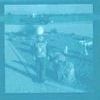 A lovely blue blend of melancholic guitar with gentle electronics, layered in percussions and paninni-pressed vocals, Cyrus Rego‘s self-titled CD hits the player dream walking through sweetness, something reminiscent of Spaceman 3 on a soft day. More soundscaping, more soundtracking, a music to dream to. Employing only some minimal lyrics, one is left listening and inserting one’s own script and dialogue. There is nothing imposing enough to insist here on sadness, though the melodic drifting is an enabler of a finer mood; bliss or devastion, and the fine line between. This is a CD to wander through your memories with, divining comfort with the soft arm only music can enfold.
A lovely blue blend of melancholic guitar with gentle electronics, layered in percussions and paninni-pressed vocals, Cyrus Rego‘s self-titled CD hits the player dream walking through sweetness, something reminiscent of Spaceman 3 on a soft day. More soundscaping, more soundtracking, a music to dream to. Employing only some minimal lyrics, one is left listening and inserting one’s own script and dialogue. There is nothing imposing enough to insist here on sadness, though the melodic drifting is an enabler of a finer mood; bliss or devastion, and the fine line between. This is a CD to wander through your memories with, divining comfort with the soft arm only music can enfold.
The liner notes give up very little in the way of clues. Everything here seems to have been recorded in someone or another’s homes, including Rego (Edward Robert) and Adam Wiltzie of Windsor For The Derby and Stars Of The Lid. Mixed on the East Side… the East Side of what? Perhaps the moon or a frozen planet, or perhaps just the East side of anyone’s imagination. The place inside where all edges are softer, all voices muted, and emotion, and feelings crash in the calmest collision, like soap bubbles that cling, then pop with a glinting splash of sunlight. There is little in the way of discernable text to go along with this recording; I can pick out the words – “time”, “with”, “sonic pink mouse”, and the number “7.6”. Can this be a hint? On a pH scale, a hovering digit, just above neutrality, just a little more alkaline than water. A substance that might cause the slightest amount of swelling or puffiness, and these sounds do swell slightly, and leave a lot of room for versatility.
Just puffed open enough to accept in, what? One’s own interpretation, one’s own dreams. There is nothing threatening here, nor is there any blandness. Five songs in, a track called “I Will If You Will” gets a little darker, a sharper edged guitar, a higher pitched voice, but ever gentle in its persuasion. I feel Cyrus Rego might lay a hand on my shoulder and guide me into my own subtle nightmare, the one where everything will be all right. This is the best kind of Ambient sound, the kind that encourages the listener’s egoism, rather than giving up all secrets of the artist. Cyrus Rego invites us to impose our own messages, fill in our own blanks. This is a beautiful collection of sounds, a sonic laboratory for listeners to carry out their own experiments. Without a trace of New Ageyness, the album floats any audience through introspection, with outcomes as easy to swallow as reality should be.
-Lilly2000-
Rehberg And Bauer – Passt
Label: Touch Format: CD
 Opening with the intro to defeat all other laptop’n’glitch album introductions, Passt kicks off with a roared interjection from Australian oddball Eric Mitsak at the start of one show of Pita Rehberg and Ramon Bauer‘s tour of his country in 2000. Naturally, since this is the world of Supercollider, fuzzy logic and fuzzier sounds, only the section “Revolver” is a straightforward live set recording. The rest of the material is made up of tampered bits from other gigs, including sections recorded at the Olympic Stadium in Sydney as part of the What Is Music? festival whose other luminous performers included Nine Inch Nails and Red Hot Chilli Peppers. The mind boggles, and then recalls pleasant memories of Atari Teenage Riot messing with their own and NiN fan’s heads with a slew of improvised digital noise at the Brixton Academy gig around the same time period. What a joy it must have been to be a hard-rocking Industrial Metalhead at that time, and even more to have watched their reactions to Rehberg and Bauer’s laptop excoriations.
Opening with the intro to defeat all other laptop’n’glitch album introductions, Passt kicks off with a roared interjection from Australian oddball Eric Mitsak at the start of one show of Pita Rehberg and Ramon Bauer‘s tour of his country in 2000. Naturally, since this is the world of Supercollider, fuzzy logic and fuzzier sounds, only the section “Revolver” is a straightforward live set recording. The rest of the material is made up of tampered bits from other gigs, including sections recorded at the Olympic Stadium in Sydney as part of the What Is Music? festival whose other luminous performers included Nine Inch Nails and Red Hot Chilli Peppers. The mind boggles, and then recalls pleasant memories of Atari Teenage Riot messing with their own and NiN fan’s heads with a slew of improvised digital noise at the Brixton Academy gig around the same time period. What a joy it must have been to be a hard-rocking Industrial Metalhead at that time, and even more to have watched their reactions to Rehberg and Bauer’s laptop excoriations.
Certain sections of that and the other audiences could well have asked themselves questions about the nature of music on the basis of Passt (let’s leave the assumption that they could and should have been posing the question anyway alone). No doubt many just gave up and went to the bar instead, but everyone else seems to have got a good old philosophical humdinger to ponder from Messers Rehberg und Bauer (of Vienna, Austria), and in spades. The shift from polyrhythmic excursions around the reprocessing plant machinery and its assorted patches, loops and tweaks soon transgresses repetirion and heads straight for crunchy, blistering noise. If these are glitches, then they’re very densely packed bits and bytes, squishing the distinction between digital and analogue through the quite simple expedient of making a racket and then twisting it into several new blistering shapes.
There’s much more to Passt than simple purgative eviscerations of the contents of the duo’ hard discs; rapid-fire loops build dynamic structures out of the aether, heartbeat motions become shuffly patches of bass and crackle; progression rides on post-vinyl pops and static crepitations snake themselves from the depths of an eviscerated loop into the foreground of demi-semi-consciously applied sonic decay in action. In other words, it’s a multi-layered sampladelic noise feast, and one that’s not to be sneezed at (because Rehberg and Bauer will probably try to sample the sound) in a zeitgeit awash with the sound of laptops uncoiling themselves with all the glee of an emetic fetishist on a binge and purge mission the hard way. Snap, crackle and squelch have become the new Rock’n’Roll for some, somehow; and more simply the best way to get sine-tinglingly lost, deleriously at that, in the inner malfunctions of sound for others.
-Linus Tossio-
Repeat – Select Dialect
Label: Cut Format: CD
 Bring together the percussive abilities of Jason Khan and Toshimaru Nakamura‘s deft manipulation of the mixing desk sans input, and it’s Repeat. Select Dialect consists of ten untitled improvisations which ride on the shrill otherworldly trill of the board and the rattle and shakes of metal, the less obvious elements of drums, bells and other percussion.
Bring together the percussive abilities of Jason Khan and Toshimaru Nakamura‘s deft manipulation of the mixing desk sans input, and it’s Repeat. Select Dialect consists of ten untitled improvisations which ride on the shrill otherworldly trill of the board and the rattle and shakes of metal, the less obvious elements of drums, bells and other percussion.
This CD works it’s way into the background at first, drifting from the interaction of tightly-restrained warbles and wobbles of the mixer at the fringes of activity as Khan makes a Zen perusal of his percussion. As events take a more rhythmic turn, the idea of singing bowls becomes favourable, as do internal structures emanating from electronics folded in, around and above themselves. Bass rumbles, unsteady whips of self-replicating tones and chirrups meet the frozen scrape and slide of metals to combine into abstracted hints at time changes and almost liquified sound. Texture is all, though beats can be summonded as easily as the passing whirr of crackling electricity as the seventh and ninth tracks confirms to heart murmuring, even post-tribal effect.
There are more than a few affinities with the clicknological sounds of a thousand laptop engineers to be drawn on many pieces, but bear in mind this is realtime stuff, not programmed or emanating from a suite of software tools. Whether formed via digital routes or from the hands and sliders of a duo hard at work on their instruments, the results possess a distracted quality which could easily veer into the nerdish and tedious in less capable hands, but Select Dialect makes the most of dynamic minimalism to drive the CD onwards into overarching absorbtion.
-Antron S. Meister-
Repeat- Temporary Contemporary
Label: For 4 Ears Format: CD
 Recorded by the duo of Tokyo minimalist composer and sound designer Toshimaru Nakamura (formerly of A Paragon Of Beauty) and improvisor Jason Khan, Temporary Contemporary is arranged as seven untitled tracks concentrating on the interplay of Nakamura’s self-sampling and solo (unconnected) mixing desk operations and Khan’s percussion and sampling. Their methodology for each track is essentially the same, building loops from fragments of percussion or feedback from the mixer, and taking the process from there, layering sloww accretions of half-abstracted sounds into constructions of contemplative repetition and harmonic counterpoint and rhythmic interaction.
Recorded by the duo of Tokyo minimalist composer and sound designer Toshimaru Nakamura (formerly of A Paragon Of Beauty) and improvisor Jason Khan, Temporary Contemporary is arranged as seven untitled tracks concentrating on the interplay of Nakamura’s self-sampling and solo (unconnected) mixing desk operations and Khan’s percussion and sampling. Their methodology for each track is essentially the same, building loops from fragments of percussion or feedback from the mixer, and taking the process from there, layering sloww accretions of half-abstracted sounds into constructions of contemplative repetition and harmonic counterpoint and rhythmic interaction.
There is quite a ceremonial aspect to the resulting music, somewhere between a prayer-wheel and a trance-dance, on occasions – the concentration involved in producing the sounds and their resulting transmission via the CD are subtly effective, with a simple electronic squeak, subterranean bass motif or a ringing piece of struck, resonant metal making for an ear-catching point of entry into each piece. The moods created can be as simply beguiling as the impression of life-forms existing in the interiors of vast alien constructs of uncertain mechanistic purposes, or the ritual exorcism of mysteriously harmless spirits from the digital aether – there is plenty of scope for imaginative reading of the soundscapes which Temporary Contemporary presents.
-Antron S. Meister
The Reptile Palace Orchestra – Iguana Iguana
Label: Omnium Format: CD
 Reptile Palace Orchestra is a crazy, Funky ensemble of seven core members that often bring in additional horn or string or whatever players into their close-knit fold, producing some of the wildest Balkan/Middle-Eastern/ Blues/Swing/Metal-influenced music you can imagine. Female lead Anna Purnell rolls Columbian ballads off her tongue like she’d never even heard English before, while technowiz Bill Feeny manages to mix fuzzbox gadgets with Classical and traditional instruments (violins, mandolins, balalaika, accordions, saxophones, and ethnic percussion) as though they actually all belong together. I took my mom to see this band play about 2 years ago, and she’s been bugging me ever since to make the drive to Wisconsin with her to catch one of their local shows.
Reptile Palace Orchestra is a crazy, Funky ensemble of seven core members that often bring in additional horn or string or whatever players into their close-knit fold, producing some of the wildest Balkan/Middle-Eastern/ Blues/Swing/Metal-influenced music you can imagine. Female lead Anna Purnell rolls Columbian ballads off her tongue like she’d never even heard English before, while technowiz Bill Feeny manages to mix fuzzbox gadgets with Classical and traditional instruments (violins, mandolins, balalaika, accordions, saxophones, and ethnic percussion) as though they actually all belong together. I took my mom to see this band play about 2 years ago, and she’s been bugging me ever since to make the drive to Wisconsin with her to catch one of their local shows.
-Holly Day-
Reptilicus – Crusher Of Bones
Label: World Serpent Format: CD
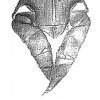 Animal mewling or violin is transmitted – it is unclear which. A ship breaches the mist and its drum sings out, rings out. A metallic tone, and a cowbell moseys on through, both intermittently. The ritualistic aspect of experimental music has gone underground – perhaps it is as it should be? Those thighbone flutes are strictly black-market, maan. The percussion continues, marching the entire tribe up the mountainside and what about the view from the sides? Images of fire (or is it an image of the flame?) conjure from the plastic spinning its dervish fervour. Modern-day mysticism?
Animal mewling or violin is transmitted – it is unclear which. A ship breaches the mist and its drum sings out, rings out. A metallic tone, and a cowbell moseys on through, both intermittently. The ritualistic aspect of experimental music has gone underground – perhaps it is as it should be? Those thighbone flutes are strictly black-market, maan. The percussion continues, marching the entire tribe up the mountainside and what about the view from the sides? Images of fire (or is it an image of the flame?) conjure from the plastic spinning its dervish fervour. Modern-day mysticism?
Now come the more modern rhythms. And merged with the emergent firecrackers on the July 2nd, 2001 that this was written, it becomes even more bound in time than usual. It’s all very heavy stuff (but not necessarily stuff and nonsense) and just what constitutes “belief”? And how does one make it apparent that one is filled with this ecstatic state? Ringing repetition and much drumming, now.
Distortion of melody and still more drumming, etc. The singer urges one and all and sundry to “Call Me Jesus”. Well, if you’re not going to back yourself up, who will? The zowie laser beams join in, and the dancefloor could be graced with the presence of these songs but 1990 was a banner year, perhaps only because it ended with a “zero”.
-David Cotner-
The Residents – Wormwood
Label: Ralph(USA) Euro Ralph (Europe) Format: CD
Subtitled “Curious Stories from The Bible”, Wormwood (which is of course the star that shot from the sky in Revelations) allows the monocular ones plenty of scope for deploying their increasingly bizarre blend of high and low American culture into the most peculiar of grand operas. While The Residents have never been exactly normal on their approach to music, here they have combined the comic-strip methods of children’s religious instruction books in the accomapnying booklet with their ever-keen lyrical observations on the sad and grimly contrary recess of the human condition.
Like a Broadway production from a parallel universe, Wormwood presents some of the catchy bits of the Christian Holy Book with a few choicely strange passages, concentrating on those which show God (or YHWH as they prefer to call ‘Him’) in the most demented, vindictive or downright capricious lights possible. All this is sung by a variety of guest singers, and scored with the scary precision of a possessed Andrew Lloyd-Webber, using frighteningly clean digital production methods to a degree which shines with the chrome glint of technology harnessed to an inspiration which is not by any stretch of the imagination devotional. The Residents seem to revel in their adoption of the guises of the high-tech, glossy productions as much as in the twisted tales of two-fisted (self-) righteous YHWH which form the backbone of so-called Western Civilisation. Staggeringly unlike anything else ever to grace a glittery silvered disc, Wormwood concludes with “Revelation” itself, a track which, as the band’s notes observe, “…is the writing of a maniac – deranged, surreal and potentially dangerous” – just like them. Bless.
-Antron S. Meister-
Restaurant Tracks – Polish Au Pair
Label: Cheap Format: 12″
Using the Restaurant Tracks guise for this occasion are Vienna’s Pulsinger and Tunakan, slipping easily into snap, bubble and pop mode with a garnish of Central European creamy richness, á la Mouse on Mars. The title track is an enjoyable dancefloor (i.e. a tad overlong for detailed listening) romp through sinuous analogue splurge with dub-inflected percussion rolls and languid bass, while the flipside “Tompkins Square Park” serves up a main course of squeaky Nouvelle-Lounge cuisine, set off by Irene Lavina‘s vocals (which are somehow reminiscent of Annie Anxiety‘s engaging ramblings). “We Want Reggae (Because It Makes Us Feel Sexy)” completes the set in upbeat, rolling style, and features a rather nice upright bass part – which incidentaly bears very little resemblance (if any) to Reggae music apart from the occasional (and understated) use of echo chambers. Diverse, energetic and so crammed full of good ideas that any dull ones are soon left behind, this is a tasty dessert, rounding off a satisfyingly filling spread of tasty Electronica.
-Freq1C-
Retro-A.K.A – Synaesthesia
Label: Korm Plastics Format: CD
As part of their Introductionary (sic) Paperback series, Korm Plastics have discovered this student at The Hague’s Royal Conservatory calling himself Retro-A.K.A., and Synaesthesia allows him to let rip from the boundaries of more formal academia. From the outset it’s clear this is going to be a somewhat precarious trip, weaving machine feedback with samples of itself and other sonic scavengings, pulsed through with sheets of noise and planetary masses of tectonic bass slides.
Not one for opting out into easy rhythms or pleasant ambience, Retro-A.K.A. conjoins the dynamics of impending eardrum-shattering assaults with the withdrawal of the pain in effectively Skinnerian experiments with the ability of the listener to second-guess his deployments of sharp bursts of grainy texture among the lurking plateaux of low-volume intensity. Turn up the levels to pick out the draughty metallic tides of “1st Granular” for example, and there’s a sonic razor blade poised at the threshold of room-listening audibility. “Outz” prepares the groundwork of rumble and mass, and just opts for volumetric increases in the wall-mashing bass.
While the rising to a peak of noise tactic can become a tad predictable, there’s always the option of bringing in some new source-estranged sources – cycling buzzers in the case of “Sonology Funk” maybe, redirected and relayered vocal tape loops from “Delta”, or some damaged handclaps for “Logic Kontrol” perhaps? – then taking up the VU meters into the extremes of red. Simple but effective, and a promising start for someone who also enjoys making a good conclusion through the sparsely clunking rhythmic base of “BBB” and turning his tactics on their head for a slow fade to quiet.
-Freq1C-
Reverbaphon – Our Heart Beats With Joy
Label: Benbecula Format: CD
 I must admit to not having heard much Scottish experimental music of recent years, with the notable exception of Mount Vernon Arts Lab/Astral Temple‘s intense droneology, so I was curious to see what Glasgow-based Reverbaphon a.k.a. Paul Smith had to offer. The gentle guitars and accordion of opener “Kartoffeln” were eerily reminiscent of Arab Strap, enough so that I half-expected some morose Glaswegian to launch into a bitter reminisce about failing to get laid. Thankfully it turned out to be an instrumental. Indeed, much of this ten-tracker is instrumental, and for that matter covers an impressively wide range of instruments — from electric and acoustic guitars and a banjo to accordions, saxophones, and things I’ve never heard of like the melodica and biwa — backed by some effective but unobtrusive sample manipulation and synthesis. Having said that, Smith’s vocals do make an appearance on a couple of tracks, and are laconic, more spoken than sung, and undeniably Scottish — so perhaps not a million miles from Arab Strap’s after all.
I must admit to not having heard much Scottish experimental music of recent years, with the notable exception of Mount Vernon Arts Lab/Astral Temple‘s intense droneology, so I was curious to see what Glasgow-based Reverbaphon a.k.a. Paul Smith had to offer. The gentle guitars and accordion of opener “Kartoffeln” were eerily reminiscent of Arab Strap, enough so that I half-expected some morose Glaswegian to launch into a bitter reminisce about failing to get laid. Thankfully it turned out to be an instrumental. Indeed, much of this ten-tracker is instrumental, and for that matter covers an impressively wide range of instruments — from electric and acoustic guitars and a banjo to accordions, saxophones, and things I’ve never heard of like the melodica and biwa — backed by some effective but unobtrusive sample manipulation and synthesis. Having said that, Smith’s vocals do make an appearance on a couple of tracks, and are laconic, more spoken than sung, and undeniably Scottish — so perhaps not a million miles from Arab Strap’s after all.
Bands that refuse to fit into a genre are fine by me, in fact top marks if you present real difficulties when it comes to lazy genre-based description, and Reverbaphon’s music, being as eclectic as the instruments it is played on, is pleasantly hard to categorise. “Hydrocow” reminded me of Stolen And Contaminated Songs-era Coil, only with more prominence given to real acoustic devices, whereas “The Hermit Returns (Again)”, which follows it, plucks out a groove on a nylon-stringed guitar that could almost have come from an obscure corner of the Beatles‘ back catalog. “Insect Interlude” combines organic ambience with an uptempo beat and some beautiful processed voice effects, while “Christa’s Accordion” manages to make the eponymous instrument sound vaguely like a bagpipe, although whether I’d have said that without reading the liner notes is an open question.
The differences in instrumental arrangement however are less apparent than the consistency of harmonic and melodic structure and the pervading mood, which is one of playfully melodic whimsy, occasionally fragile and wistful but never really taking a turn for the dark. This album is certainly not pregnant with dramatic tension, loaded with half-hidden subtexts or prone to unexpected mood swings, although Smith’s lyrics, when they appear, hint ambiguously at losses incurred or impending. It runs the risk of coming across as avant-garde wallpaper or coffee-table experimental, and the clean, slick production and well-balanced ensembles of real and virtual instruments don’t do much to dispel this impression; however listening closely reveals a genuine compositional aptitude that should dispel any suggestions that Reverbaphon is lightweight or throwaway. It would be nice to hear the results of Smith digging deeper into own psyche and exploring a range of emotional textures as broad as his collection of studio kit. There’s definitely room for more vocals too.
-Andrew Clegg-
Reverberation – New Soul: Reverberation Remixes By Muslimgauze
Label: Third Stone Format: CD
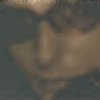 Bryn Jones would seemingly remix any tape or CD as soon as it arrived in his studio, and the five versions of French Spacemen 3 enthusiasts Reverberation‘s music found on this disc find him in playful mood, chopping the source sounds into a very different terrain of Funky breakbeats and islamic radio voices. Bass is the first impression of the treatment meted out to the original material, then the chopping, relooping and filtering is applied along with the Francophone and Middle Eastern vocal snatches peppering each mix in typical Muslimgauze style. As the patter of chunky beats weave between bellows of synthetic bass and the hum of electronics on a quest to become harmoniums, there is the feel of the remixer’s touch lying stragely on the bedrock of the subject material – and this is possibly to the benefit of broadening the range of Muslimgauze’s sound palette somewhat, bringing digital beats into his generally austere analogue world of tape loops – and vice versa, naturally.
Bryn Jones would seemingly remix any tape or CD as soon as it arrived in his studio, and the five versions of French Spacemen 3 enthusiasts Reverberation‘s music found on this disc find him in playful mood, chopping the source sounds into a very different terrain of Funky breakbeats and islamic radio voices. Bass is the first impression of the treatment meted out to the original material, then the chopping, relooping and filtering is applied along with the Francophone and Middle Eastern vocal snatches peppering each mix in typical Muslimgauze style. As the patter of chunky beats weave between bellows of synthetic bass and the hum of electronics on a quest to become harmoniums, there is the feel of the remixer’s touch lying stragely on the bedrock of the subject material – and this is possibly to the benefit of broadening the range of Muslimgauze’s sound palette somewhat, bringing digital beats into his generally austere analogue world of tape loops – and vice versa, naturally.
When things take on a rolling HipHop groove and then progess into Drum & Bass frippery on “Nite Time – Prayer Time” and “Autogrye (Rocket Mix), the rapid-fire rewinds take on a rhthymic life of their own. Jones skimms the basic Reverberation structure into a metallic tape equivalent of scratching while the prayers are intoned to Allah with a mysterious leavening of spiritual throb to the stop-start motion and the breakbeats are undercut with wail of air raid sirens or droning violins and a souk caf�babble. Tearing synth burbles have the air of the contemporary bassline zeitgeist, uprooted and placed in a different context by the rising tide of unnervingly present conversational Arabic and the swell of a radio station. The sudden skip to “Space Goes On” is more of a pause for breath, and the rhythm and chat continues apace and intensified as the drones begin to dominate the slowly filtering and fragmenting melody stutters into oblivion as children play along to the relentless mechanical beat gyrations. For the conclusion, “Free Your Soul” brings the Muslimgauze drop-out noise and percussion loops to the fore on a ultra-low Dub bass grounding as signals form the electronic aether make prickly coruscations from Reverberation’s leavings and scrapings.
These Reverberation Remixes make a refreshing conjunction of the band’s straightforward stoner Rock and sampler grooves and the distended radio-wave cultural surfing of Muslimgauze; both parties come out refreshed, and perhaps only suffering from a little bit too much of a good rhtymic thing along the way in the length of some of the tracks. Otherwise, recommended wholeheartedly.
-Antron S. Meister-
Revolutionary Corps Of The Teenage Jesus – Righteous Lite TM
Label: Creeping Bent Format: CD
Featuring that curmudgeonly and ever-scathing veteran of a thousand bottlings Alan Vega, and onetime drummer with Altered Images (also producer of Black Grape and er, Hanson), Stephen Lironi, Righteous Light TM is another recent release to open with a song on the subject of imminent war and religious fervour – looks like there was something in the air after all. Lironi apparently came to Vega’s attention after remixing Suicide‘s most disturbing track “Frankie Teardrop” in 1996, and they’ve been working on this project ever since. The follow up single “Protection Rat” appears here too, and it’s as if the whole Suicide sound had been bodily transported from 1977 into the digital sampling era.
This is where Righteous Light TM differs significantly from Vega’s collaborations with Pan(a)Sonic – the rhythms, chords and even sometimes the sounds are so similar to Martin Rev‘s monomaniacal keyboards that it’s like an all-new Suicide album. This is no bad thing at all, and while the sound of twenty-two years ago was and remains powerful because of its very lo-fi buzz, Lironi enters fully into the required spirit of searing noise and swelling melody (as evinced on the stirring “Daddy Died,” which is a melodic ringer for “Che”). Vega too, is on top form, and there’s the bonus that their use of the name Revolutionary Corps Of Teenage Jesus (while having already been nabbed in its exact form) refers to Luis Buñuel‘s pan-nihilist terror group in The Obscure Object Of Desire. Making it a Teenage rather than an Infant Army changes the emphasis in a far more Rock ‘n’ Roll manner – just right for the man who still kicks against the pricks with well-honed, post-adolescent rage after all these years.
Fantastically energetic, and the perfect follow-up the both the original Suicide albums and the Vainio Vaisanen and Vega noisefest, it’s also a blast to hear Vega rant over pounding breakbeat Techno on the forthcoming single “Pay The Wreck Mr. Music King,” whispering epic, chiming HipHop protest in “Who Cares Who Dies” or revelling in the skidding motorbikes and Bossanova-Boogie of “Motor Cross.” The retro drone beloved of Sonic Boom comes to the forground on “Money Day” or “American” where the old-fashioned drum machine sound locks grooves with Nineties-style sequences of abstracted samples -but still with that spine-chilling minor-chord electric piano riff which retains all its power to ennervate and engage, as do Vega’s uniquely impassioned diatribes.
-Freq1C-
Rhythm Of Snow – Uni:form
Label: Uni:form Format: 12″
Adalsteinn Gudmundson, aka Rhythm of Snow, is a bit of a cult figure in Icelandic electronica. At the age of 22 he has been building up his reputation for the last four years since releasing “Getting Close to an Unknown Goal”. Electronica is certainly alive and well in Iceland, and Rhythm of Snow provides solid proof – if snow can ever really be said to be solid.
This is Electro moving around in some rather nice ambient directions. “Consciousness Defines Itself”, “I Think Therefore I Am Confused”. The track titles leave nothing, or perhaps everything, to the imagination. Uni:form is a great record. Sit down and let it melt over your turntable.
-Mephist-
Boyd Rice – The Way I Feel
Label: Caciocavallo Format: CD
 Here is the way I feel: Boyd Rice is a buttfaced prick. This CD is a collection of his hatred, gathered together over years of practice at being objectionable. The one thing that can be said is that Rice is fair with his hatred. He hates everyone, Blacks, Jews, women, God, people in general, deer. He wishes us all to be hurt and tortured and killed. He wants bad things for the whole world, the universe. That is the way he feels. Rice says that “social moral decay is like an out of control cancer that has taken charge.” I bet this truth makes him very very happy. Or was he just trying to be ironic, uhhhhgain?
Here is the way I feel: Boyd Rice is a buttfaced prick. This CD is a collection of his hatred, gathered together over years of practice at being objectionable. The one thing that can be said is that Rice is fair with his hatred. He hates everyone, Blacks, Jews, women, God, people in general, deer. He wishes us all to be hurt and tortured and killed. He wants bad things for the whole world, the universe. That is the way he feels. Rice says that “social moral decay is like an out of control cancer that has taken charge.” I bet this truth makes him very very happy. Or was he just trying to be ironic, uhhhhgain?
Of course, there is a good deal of great music contained within. Fabulous loads of horns and noise and all that Current 93 Folky lore stuff. Over the years Boyd Rice has had the pleasure of collaborating with many talented people who can’t all be so great, knowing that they are his pals. David Tibet is there, Rose MacDowall is there, (not using a real name of course, but then is Rose her real name either?) and Coil too. Boyd Rice is himself a scornfully talented man. His innocuous voice rolls over all the music with a pitiable amount of sarcasm, very Henry Rollins style, spoken words. He has no discernable accent which I bet he practised to achieve, and he sounds disarmingly soothing. He once told a friend of mine that his was just a darker sense of humour. I don’t like to imagine who is laughing.
A lot of what Rice has to say is true, we are despicable as humans and of that there is no doubt. I just can’t imagine how exploiting the worse parts of our nature, the racism, elitism, stupidism, as Rice does for profit, is a valid thing to do to music. And it certainly doesn’t seem funny. (OK, well maybe the “Motherfuckin’ deer bit me” song made me laugh a tiny bit). I am sure that some of the worst of this is to realize how much as a listener I might share in common with such a prick, or the portrayal of a prickish persona indistinguishable from the actuality, or whatever his excuse is. Maybe I am just a prick too. In fact I would happily dedicate Rice’s own collaboration with Douglas P. “People”, to them both with love. Or hate. Or whateverism. I feel too sick to my stomach to keep listening.
-Lilly Novak-
Boyd Rice/NON – Terra Incognita (Ambient Works 1975-Present)
Label: Mute Format: CD
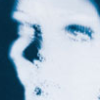 Boyd Rice. An enigma wrapped in a puzzle wrapped in a conundrum wrapped in a uniform. The Satanist skinhead who sings like Lee Hazlewood and loves 60s pop. The Social Darwinist you could take home to meet your mother. What’s that, you say? He does noise as well? Ah, that must be why I’m here then.
Boyd Rice. An enigma wrapped in a puzzle wrapped in a conundrum wrapped in a uniform. The Satanist skinhead who sings like Lee Hazlewood and loves 60s pop. The Social Darwinist you could take home to meet your mother. What’s that, you say? He does noise as well? Ah, that must be why I’m here then.
Except it isn’t. A pioneer of Industrial music (as the title would suggest, one of the earliest tracks on here, “Immolation Of Man”, dates from 1975), Mr Rice isn’t always about the huge, Wagnerian tapeloop infernos for which he is rightly feted. Sometimes, even as NON, he can play… well, maybe not nice, exactly, but gently. And here’s the proof. Thirteen of his more ambient tracks, just to prove that, as the very best of horror movies (The Exorcist, for example) have for their own genre, less is so often more- fuckloads more- when it comes to dark ‘n disturbing. Where some Rice stuff will pummel you into oblivion and CRUSH YOU LIKE THE WEAK UNDESERVING FOOL THAT YOU ARE, the selection here tend to sit at the back of your cranium nagging at you. It’s much more a “hearing voices telling you to do things” kind of vibe than an “invading Poland” one.
Although, for Boyd, “Ambient” doesn’t mean “Minimalist”. Fuck, for Boyd, NOTHING means minimalist. Not even “Minimalist”. If anything, these soundscapes are more epic than any of his full-on, Viking-army-at-the-door brutalist assaults more common on, say, Easy Listening For The Hard Of Hearing (from which we get three extracts, featuring the late Frank Tovey, one of which sounds like tiny metal insects busting at the walls of a petrol can just so they can get out and eat your face off) or Blood and Flame. Even lo-fi tapeloops like, erm, “Untitled 1” have a huge sense of space while filling it all, leaving only your own twisted mind to add the pictures (and believe you me, I know what a sick fuck you are…) Receive the Flame (represented here by “Solitude”) saw NON moving into a more melodic arena, where sound itself was no longer the target of his onslaught, but actual tunes which, threatened with acts of extreme violence towards their families, and possibly Guantanamo-style sonic overload torture techniques, began to yield up bizarre secrets even they themselves didn’t know they were privy to. Then came Children of the Black Sun, his masterpiece of Industrial Gnosticism, from which we have “Arka” and “The Fountain Of Fortune” (which, unless I’m very much mistaken, is the sounds of Earth, Air, Fire and Water eventually becoming one), both beautiful pieces which flow straight through the ears into the brain, carrying their DESTRUCTIVE PAYLOAD OF BOYD RICINESS RIGHT TO THE VERY CORE OF YOUR BEING! MWAHAHAHAHAHAHAHAHA!!!!!!!!! Ahem. Where was I?
Oh yes. I was telling you about Boyd Rice’s ambient compilation. ‘kay. The Orb this ain’t. And, while it would have been nice to have some new stuff, as anyone who’s likely to buy a Boyd Rice ambient compilation probably has most of this already, it’s still wonderful to have them all in one place. And in an order (that’s “order” with a small “o”, in case you were worried) that shows them all off to their best advantage. In short, Terra Incognita is excellent, and proves once and for all that even in “extreme” music, volume isn’t everything. Just don’t expect any crooning, ‘sall I’m sayin’.
-Deuteronemu 90210, Lover Of The Russian Queen-
Dean Roberts – All Cracked Medias
Label: Mille Plateaux Format: CD
Accompanied by what must surely win an award for inaccurate, impenatrable and portentious, not forgetting comprehensively mis-spelt, sleeve notes, Dean Roberts‘s second album release “documents an attempt to eradicate the notions Theatre and Narrative resultant in composition/performance.” Which is fine if what Roberts means is that he takes piano, guitar and various percussion instruments and objects, and forms them into a selection of Electro-acoustic pieces (three in all) which operate in the arena of free or semi-composed sound generation.
There have been plenty of recordings made which foreground the sounds and the recording process themselves, and plenty of those have been described badly too, so Roberts can be forgiven his presentation. The initial arrangement of sound and the juxtaposition of elements (including an electronic alarm clock for maximal jarring effect) is actualy quite good, with drones established, strings stroked and rattled, and every attempt made where necessary to disguise immediate source materials. This sort of thing is sometimes works best as either background or meditative music, though in the former case the intrusions of the process into the resulting flow can sometimes be a little distracting – not always a bad idea.
By about half way through “Kompakt Arcade” though, things get serious, with scraping, attenuated sounds mingling with blips and creaks in a fine atonal collision which perks up interest no end. The sounds positively demand attention, and by the second section “Your Media/You-Topia,” have become a mixture of the intrusive and the (mostly) hypnotic. All Cracked Medias maintains interest much of the time, though would probably be more interesting to hear live than on disc, where the element of repeated listening can dull the effectiveness of Roberts’ improvisational technique. The final track “Moving Chairs” is so quiet that incautious casual listens can result in nodding off – but is generally worth sparing the time for concentrated contemplation.
-Antron S. Meister-
Robot – Super Dynamic Sound System
Label: Pigdog Format: CD
Super Dynamic Sound System? Are they joking? With this splurge of cacophonous, sprawling noise? Nope. There are, after all, a lot of dynamics at work in Robot‘s sound; they may just not be those usually associated with such a title. For a start, the CD opens with a sampled voice declaiming the name of the group and the album title in cut-up style, before the discordant fumblings of “Martian Astronaut” set the tone for the record which follows – which as a very nice touch has its tracks numbered in binary.
Robot are resolutely Lo-Fi. Quite proud of their amateurish status, they also produce splatter-Electronica-concrete which continually re-investigates the Platform 5(Five) dictum that “Music doesn’t have to be good” – which is not so much an insult, more a statement of intent, and like the askance laterism of Half Japanese or Daniel Johnson, once the initial predjudices about what exactly constitutes a song or production values are overcome, this recording is engaging on its own terms. Like a blindfold journey through a lysergic dreamscape, Robot wanders through the detuned radio Blues of “Retina Burns”, the hiccuping lope of “Own Little World”, and the drone-dirge love song lament “Voyage Of The SS Hattiefattener”, knocking into tape-controls, semi-randomized effects levels and mixdown incongruities along the way.
Much credit must also be given to the stream of filth spewing forth as the basis of album highlight “Rudeboy”, a non-standard interpretation of the parameters of Raggamuffin Junglism, which dispenses with the conventions of rhythm and melody, preferring to concentrate on the squelching possibilities of splurging analogue synthesis in combination with highly abstract bass boom and random cheap-keyboad bursts. Oh, and a lot of swearing too. An instant classic, just not for people who like their music to have traditional values such as listenability, Super Dynamic Sound System shows that home-CDRecording maybe just has the chance to kill music.
-Linus Tossio-
Mario Rodrigue – Alchimie
Label: Empreintes DIGITALes Format: CD
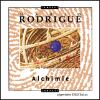 Bells subsume into drainage systems and there is something quixotic about the cutting-up of water. And is identifying sounds winning out over listening to them? A taste of honey and a swirl of flies? Now shivering and wobbling, with an unidentified lowing beside. The cut-up re view? No, as it coincides with the lowing laugh – that would be banal. Voices of children are trumped by more wobbling. Thumped? It could be read as such. Coo-koo. Applause. Is alchemy’s transmutation nothing less than an exchange of ideas? Something from nothing…
Bells subsume into drainage systems and there is something quixotic about the cutting-up of water. And is identifying sounds winning out over listening to them? A taste of honey and a swirl of flies? Now shivering and wobbling, with an unidentified lowing beside. The cut-up re view? No, as it coincides with the lowing laugh – that would be banal. Voices of children are trumped by more wobbling. Thumped? It could be read as such. Coo-koo. Applause. Is alchemy’s transmutation nothing less than an exchange of ideas? Something from nothing…
Telephone message – communications. Tones – questions. Voices – attention. Musique concr�e – it is unclear.
-David Cotner-
Rollerball – Bathing Music
Label: Road Cone Format: CD
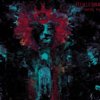 The cool thing about this album is that you can never really tell where these songs or going, or at least I can’t. Melancholic ambience is broken up by waves of sampled protest singing, while layers of mismatched rhythm tracks collide against each other, eventually changing the pace of the entire song. The entire CD is recorded beautifully, with stark piano sequences set against liquid-sounding effects and violin music, shimmering vocals that fade in and out of the forefront-God know what they’re singing about, as the music’s way too wonderfully distracting to actually sit and try to contemplate lyrics.
The cool thing about this album is that you can never really tell where these songs or going, or at least I can’t. Melancholic ambience is broken up by waves of sampled protest singing, while layers of mismatched rhythm tracks collide against each other, eventually changing the pace of the entire song. The entire CD is recorded beautifully, with stark piano sequences set against liquid-sounding effects and violin music, shimmering vocals that fade in and out of the forefront-God know what they’re singing about, as the music’s way too wonderfully distracting to actually sit and try to contemplate lyrics.
-Holly Day-
Rope – It’s No Fun To Compute
Label: Geist Format: CD,LP
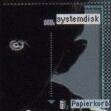 Another one of the seeming legion of classically-trained musicians who got fed up and went off in search of the joys of electronic noise and fragmented soundscapes, Rope‘s Berlin-based originator Jayrope has assembled a selection of live studio recordings made with his core collaborators over a year or so, and thoroughly dismantled them until they almost groan with the strain. It’s No Fun To Compute opens with a burst of cut ups where vocal lines, percussion, electronics, samples and who knows what are skipped around with over a pulsing bass tone, and continues from there on in to bounce tracks off each other and through a varispeed bundle of effects; then it really starts to get peculiar…
Another one of the seeming legion of classically-trained musicians who got fed up and went off in search of the joys of electronic noise and fragmented soundscapes, Rope‘s Berlin-based originator Jayrope has assembled a selection of live studio recordings made with his core collaborators over a year or so, and thoroughly dismantled them until they almost groan with the strain. It’s No Fun To Compute opens with a burst of cut ups where vocal lines, percussion, electronics, samples and who knows what are skipped around with over a pulsing bass tone, and continues from there on in to bounce tracks off each other and through a varispeed bundle of effects; then it really starts to get peculiar…
Rattly percussion and some kind of Funk sensibilty make for a stop-start album with an organic feel, song structures struggling among the frantic loops and slips of tape rewinds; it’s sometimes Jazz maybe, but not as usually expected, somewhat in the way that Laika play the Blues – sideways, technologically, awakwardly, but taken to the nth degree of wobblyness. Or Funk with hiccups, hyperspeed Lo-Fi Techno style. What this is all attempting to describe is the miamsic feeling the music evokes, as a regurgitated riff becomes washed out into a thudding beat which evolves into swarming flanger trails. An album of head-messing reliance on the reverb unit and mixed as if to try every combination of slider and punch-out on the desk, It’s No Fun… (or INF2C as Rope shorten the title) sometimes slaps the face of Electronica quite rudely before going off into its own peculiar sung tangents. These include the affecting query “If we stood by the river/…Would you push me in” on “If”, which resembles the sinister Pop Throbbing Gristle explored on Twenty Jazz Funk Greats, or the weird burbling tale “Dog In Southern New Mexico” where Jayrope’s wandering spoken vocals about seeing horses die in the sun and sand complement a shifting rhythm section and some dissonant percussion. Very odd.
There is some humour and melody among the single-minded eccentricity; “You’re Soooo Lame” mixes up a synthesized vocal with an ultra-minimal thud-beat until it keels over into a miniature curve of effects, and “Machine AC” is nearly acoustic, apart from some treated vocals, in a vaguely Country kind of way, harmonica and all. The frenetic start contrasts with more spasmodically mellow pieces like “Rope Theme” or “Desert Dream” which lead the record gradually towards a twitchy, downbeat conclusion of spluttering electronic noises and birdsong. Rope seem to have taken every kind of motif they find attractive, and bashed them around into whatever works, and largely it comes off well. Unsettling at times, It’s No Fun To Compute almost embodies entropic dissolution as it crashes from the energy of the first half into a slow decay at the end. And whatever else, its demand for attention is refreshing, and one which is difficult to ignore.
-Antron S. Meister-
Jack Rose – Dr Ragtime And Pals/Self Titled
Label: Beautiful Happiness Format: 2CD
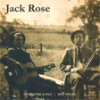 It pretty much goes without saying that Jack Rose is at the forefront of the American Primitive school of folk based around acoustic guitar and in Rose’s case lap steel too. This double CD provides a European release for two albums issued previously on vinyl on the Tequila Sunrise label (and Self Titled was also put out on CD by the marvellous Archive Records in a long-since deleted edition).
It pretty much goes without saying that Jack Rose is at the forefront of the American Primitive school of folk based around acoustic guitar and in Rose’s case lap steel too. This double CD provides a European release for two albums issued previously on vinyl on the Tequila Sunrise label (and Self Titled was also put out on CD by the marvellous Archive Records in a long-since deleted edition).
Dr Ragtime finds him and friends Glenn Jones (of Cul de Sac and himself a notable exponent of the form), Mike Gangloff (banjo, and a former collaborator in Pelt), Micah Smaldone, Sean Bowles on washboard and Harmonica Dan making the sort of sounds which resonate so strongly of the USA that it’s nigh on impossible not to picture a rocking chair on a wraparound porch, a jug of iced tea and a vast sense of space populated with mile-long trains, abandoned factories with tin shacks built into the roof and the breath of possibilities, real or imagined, blowing through the continental breezes. The chiming steel strings vibrate through the album’s twelve instrumentals like the wires of the telegraph poles which dot and connect small town America, and the melodic beauty of the playing is touched by a sadness as immense as the Mojave desert skies and rugged as the mountains of Appalachia. One glance at the old-time guitarist and fiddler all dressed up in their best suits sat on hard-backed chairs in a country field on the cover is almost enough to picture the sounds here, and the shadowed faces which peer out from the sepia are simultaneously as tightly under control – and yet as relaxed – as Rose’s music.
Self Titled is Rose solo, the lap steel twanging to the cursive strums of his acoustic guitar on seven pieces of mesmerising redolence, the Americana connections above stripped down to the sound of one man and his brightly expressive music. The deceptive simplicity underscores the power of the tunes, which roll and spring forth into expanses of frankly astonishing guitar work, and it’s at about the time “Revolt” kicks in that it’s necessary to mention John Fahey, simply because Rose is a worthy follower along the trail he blazed across a century which half forgot – and sometimes misremembered – America’s folk music heritage for some long while. Jack Rose, along with the aforementioned Glenn Jones as well as the likes of Sir Richard Bishop, are keeping the passion alive for far more receptive ears these days – and it can be heard in every strum, glide, chord or tap on the body of Rose’s guitar as he works through the American songbook, closing with a plangent rendition of “Dark Was the Night” every bit a stirring as Ry Cooder‘s use of the same tune as the central motif for his evocative soundtrack to Paris, Texas.
Self Titled is a classic; and the combination with Dr Ragtime makes for a double delight to the ears.
-Richard Fontenoy-
Frank Rothkamm – Mystery Of The Leaping Fish
Label: Flux Records Format: CD
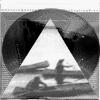 “It is a historical fact that in 1967 Australian Prime Minister dived into the ocean off a beach near Melbourne and vanished without a trace. It has been speculated that he did not drown but was initiated into the Grand Lodge of the Deep while under water. It is said that this legendary Lodge still presides in a underwater geodesic dome, occasionally mistaken for Atlantis. Although not much is known about the Lodge’s rites, communication took place the enabled me to receive the recordings found on this disc.”
“It is a historical fact that in 1967 Australian Prime Minister dived into the ocean off a beach near Melbourne and vanished without a trace. It has been speculated that he did not drown but was initiated into the Grand Lodge of the Deep while under water. It is said that this legendary Lodge still presides in a underwater geodesic dome, occasionally mistaken for Atlantis. Although not much is known about the Lodge’s rites, communication took place the enabled me to receive the recordings found on this disc.”
A certain amount of speaking through water happens on this recording. The sounds gesticulate from afar, trying to make themselves be heard clearly. It is as if the ambient murk obscures the mouth so that not even the lips are heard. And there is a flow to it all – past this eel of sound and that fish of tune. There goes a stingray, chased by a manta ray. Oo wah oo wah. The singing of the monkfish pervades. A bell and the chittering of water. Where did our esteemed Prime Minister go? What bends in the road did the journey take? There is the distinct falling feeling in the sounds. And, of course, there are whales. Killer. A warble of sound gazes up to the destroyed world as it descends, past the pieces of chorale, ripples bottoming up and fading…
-David Cotner-
Rudimentary Peni – The Underclass EP
Label: Southern Format: CDS,7″
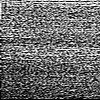 Like most dumb pre-pubescent middle-class kids in ’80’s Southern California, I had a Rudimentary Peni T-shirt long before I actually heard the band. Just the name sounded cool and offensive and worthy of associating oneself to. It wasn’t long after getting the cool T-shirt that I started getting mix tapes of the band from friends that owned the records, and a fan was born. Lucky for me, Nick Blinko & Co. have continued to churn out pretty much the same style of offensive, hard-core, borderline Metal Punk Rock since their inception in 1981 without sounding like they’re rehashing old material-obviously a hard thing to do, judging from the material released lately by their contemporaries. This new album is just as harsh as anything else they’ve ever put out, and just as crass and funny, too.
Like most dumb pre-pubescent middle-class kids in ’80’s Southern California, I had a Rudimentary Peni T-shirt long before I actually heard the band. Just the name sounded cool and offensive and worthy of associating oneself to. It wasn’t long after getting the cool T-shirt that I started getting mix tapes of the band from friends that owned the records, and a fan was born. Lucky for me, Nick Blinko & Co. have continued to churn out pretty much the same style of offensive, hard-core, borderline Metal Punk Rock since their inception in 1981 without sounding like they’re rehashing old material-obviously a hard thing to do, judging from the material released lately by their contemporaries. This new album is just as harsh as anything else they’ve ever put out, and just as crass and funny, too.
-Holly Day-
Runzelstirn & Gurgelstock – Morz Und Kotschlag: Psycho-Physical Test And Trainings By…
Label: Selektion Format: CD
Does the test include checking of the volume to see if there’s anything on the recording? Initially, that test is taken. A growl.
A click. An accordion. Yelling. It is unclear what the criteria
is for
placeme nt
of sound and infactitis
almost like aaaaaaaaaaaaaa poem. These s o u n d s.
Water. A stringed in strum ent. It is as though an old cabin is beingporedover – items are being
re disc
covered. Sweetnessandlight.
It is as if objects are being seen for the very first time, and this is a very childlike aspect to be immersed in. Could the alleged coprophagia simply be a part of this? The accordion breathes quickly, a little kitten playing with the choking man. At times it appears to be a kind of aural Rorschach test. Mechanics make their way into the sounds – rotating, grinding. Whether person or object – it is unclear. Sounds of impact p.u.n.c.t.uate the proceedings. The angry growl. A repetition of chirps and screeches. Something hums and strums. Much choking – as though someone has put his very life and breath onto a rotating circle of reflections…
-David Cotner-
